Population and Social Characteristics
7 Ways You Can Tell Americans and Canadians Apart
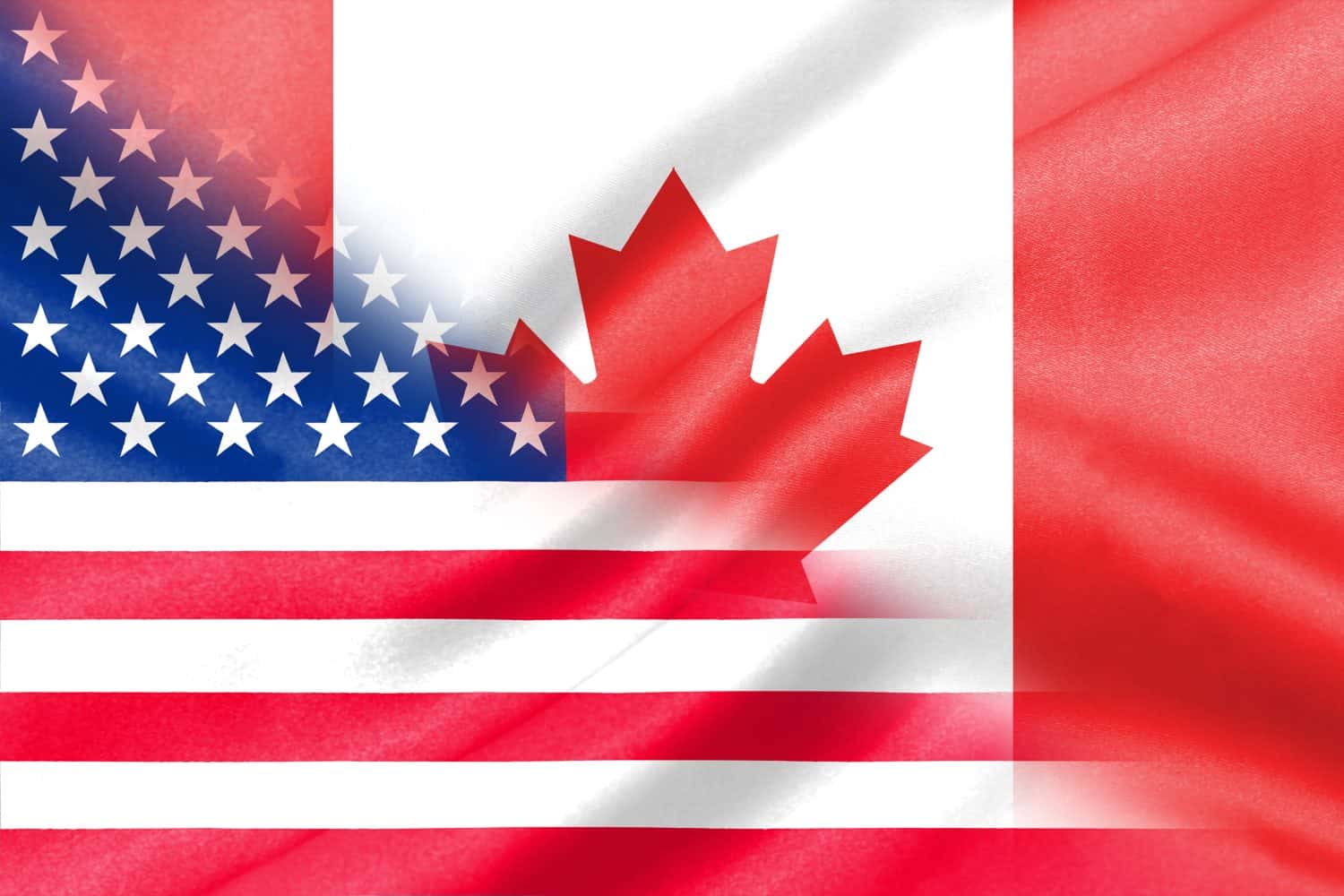
Published:
Last Updated:

Citizens of the United States and Canada have similar cultures and ways of behaving and speaking. Telling them apart is tricky, not just for foreigners, but for people in North America themselves. Knowing the differences can be important, though, to avoid making assumptions that might make you look ill-informed or arrogant. We’ve put together a handy-dandy guide for you, and fact-checked it with a couple of real-life actual Canadians. So we’re marking this guide “2-Guys-From-Canada-Approved!”
24/7 Wall St. Insights
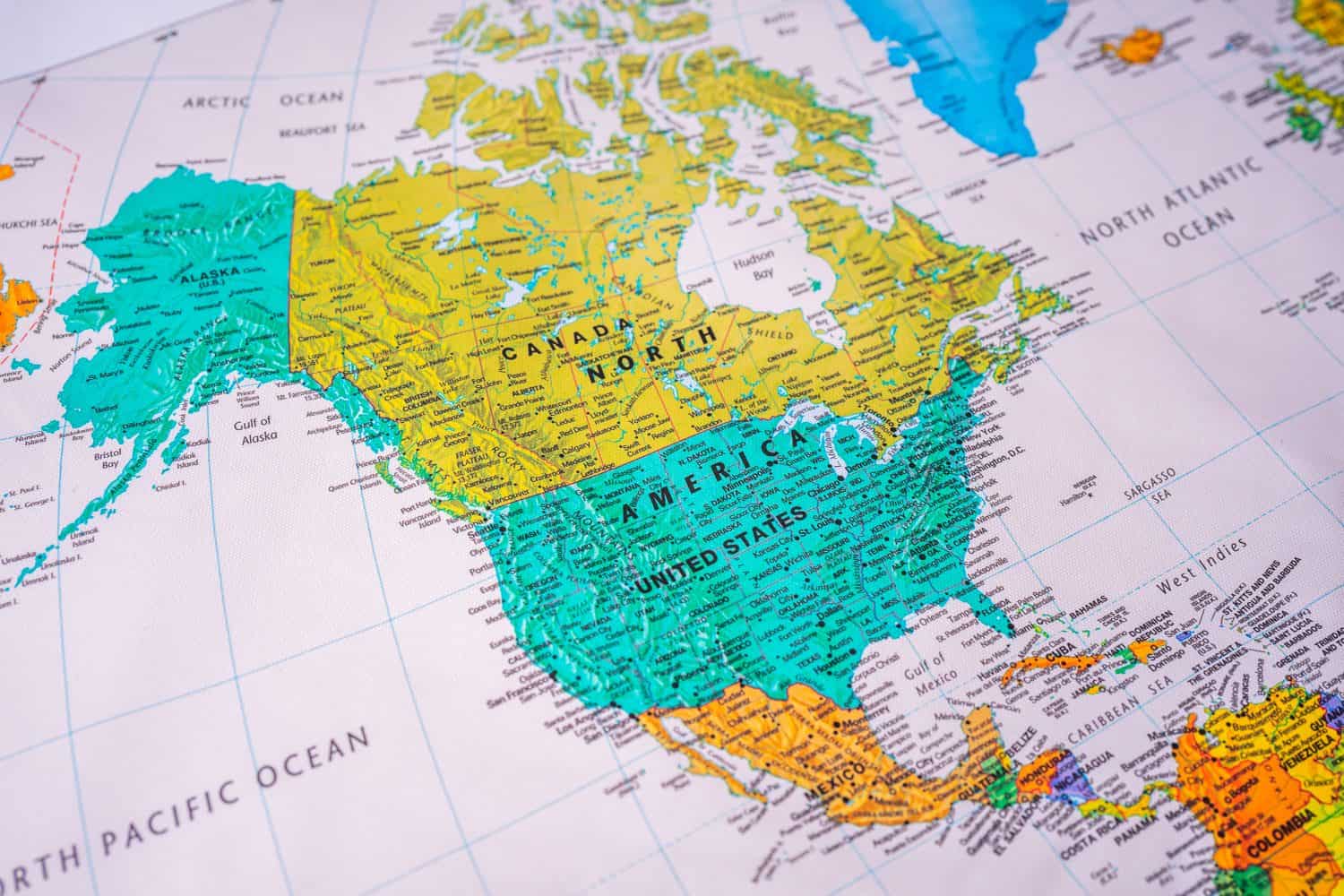
We need to get something out of the way right from the start. Citizens of the United States have claimed the term “American” and from time to time a Canadian doesn’t like that because they share the North American continent too. Although they don’t refer to themselves as “Americans,” some feel it is arrogant for people in the U.S. to do so, as if they are claiming a whole continent (or two) for themselves. So if someone calls you out on referring to yourself as an “American,” you can be 99% sure that person is Canadian. In this article we’re going to use the term because “United States-ian” is a little too clunky.
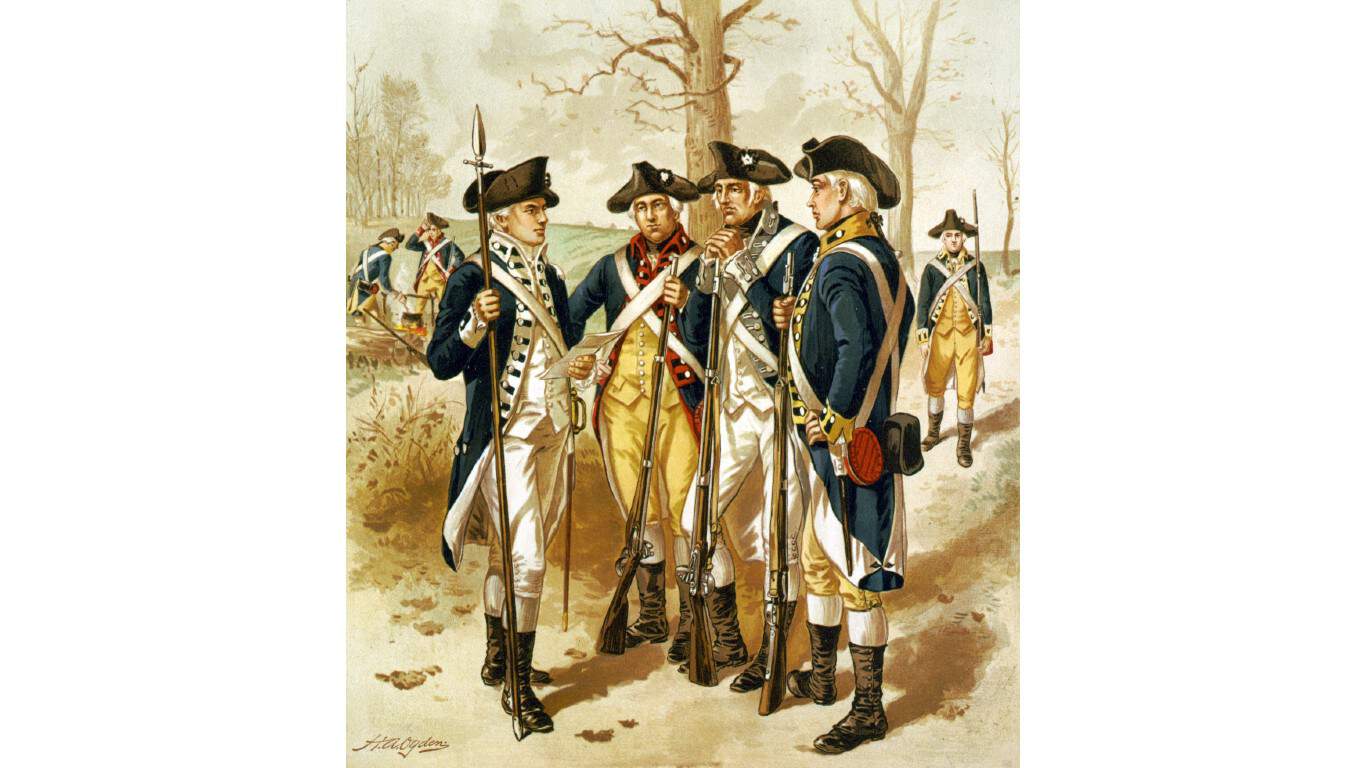
Both Canada and the United States started out as a series of smaller British colonies. When 13 of the colonies rebelled, they invited Canada to join, to no avail. Efforts to invade Britain’s colonies in what is today Canada during the Revolutionary War and the War of 1812 were unsuccessful. Many tens of thousands of citizens of the 13 American colonies who still wanted to be British moved to Canada, particularly to New Brunswick and Nova Scotia.
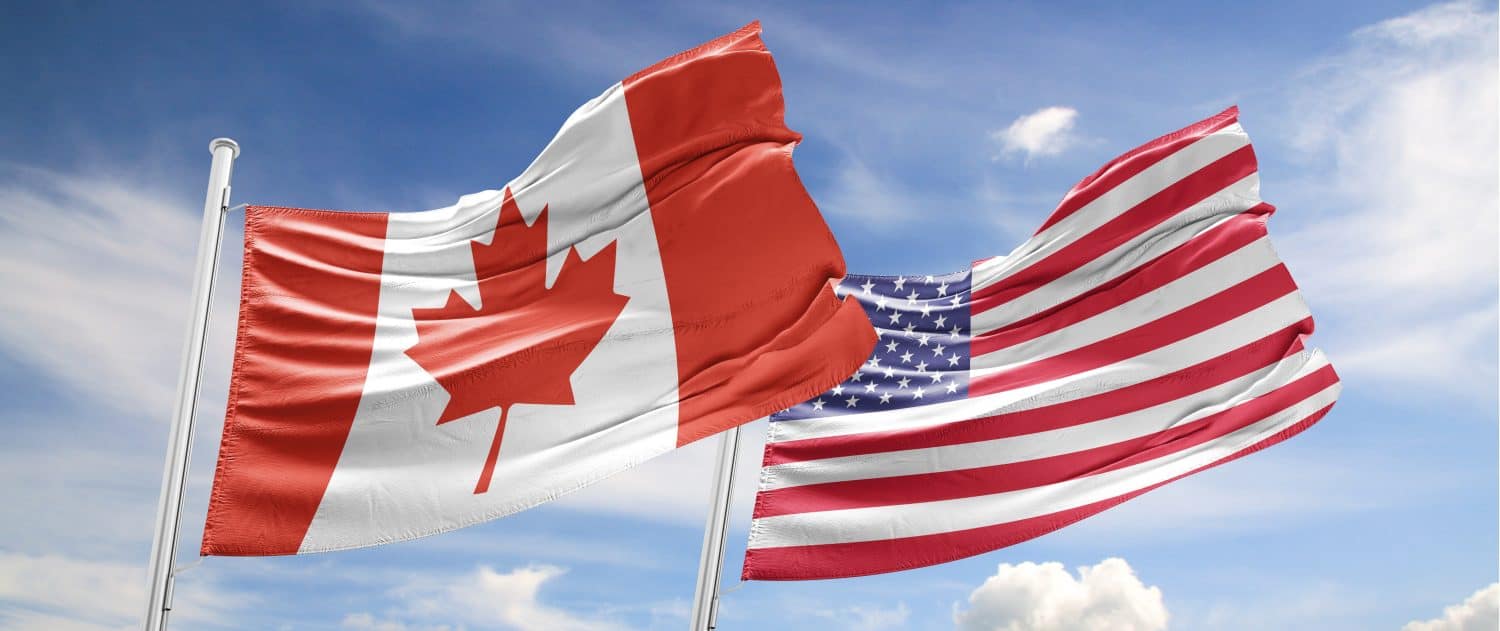
After the border with Canada was agreed upon, relations began to improve. The two countries fought alongside each other in both World Wars and became NATO allies, meaning that an attack on one is the same as an attack on both. The two countries now have the world’s longest undefended border, a free trade agreement, and are among each other’s biggest trading partners, doing about $600 billion in trade every year.

Canadians are easily mistaken for citizens of the United States. Nowhere is that more evident than in big-name celebrities that many people do not realize are Canadian citizens. See if there are any surprises for you in this list of Canadian stars, along with their places of birth:

The easiest way to tell citizens of these countries apart is to catch a glimpse of their passport in the airport, or just ask them. There might be times when you feel like it’s not appropriate to ask, so following are some cultural cues you can look for. Keep in mind many of these are shared by Americans as well, particularly in border areas. So while none of them is conclusive, noticing several of them can add up to a possible Canadian sighting. And of course, plenty of Canadians share aspects of American cultural behaviors and attitudes and can easily blend in with people from the States.
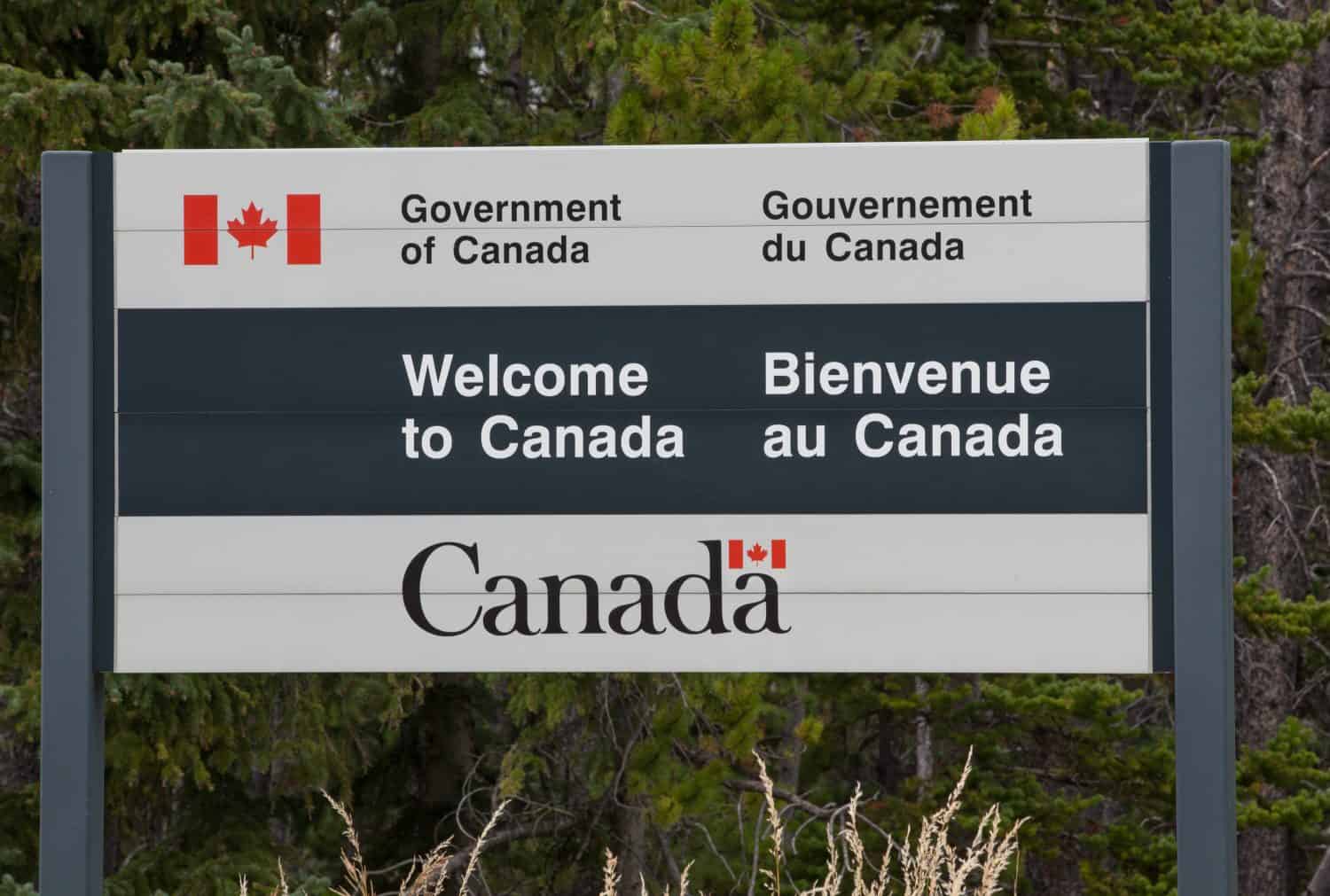
Canadians pronounce the “ou” sound in words like “house” or “about” a little differently. Their pronunciation of the latter word sometimes sounds like “a boat” to people from the U.S. It’s not entirely unique to Canada, though. This pronunciation is shared by people speaking the Tidewater accent in coastal North Carolina and in Virginia around the Chesapeake Bay and Eastern Shore and in the southern part of the state at least as far west as Pittsylvania County.
Canadians from Quebec frequently have a French accent. Americans are immediately distinguishable from Canadians if they are from a place with a strong regional accent, like New York, New Jersey, or many parts of the South.
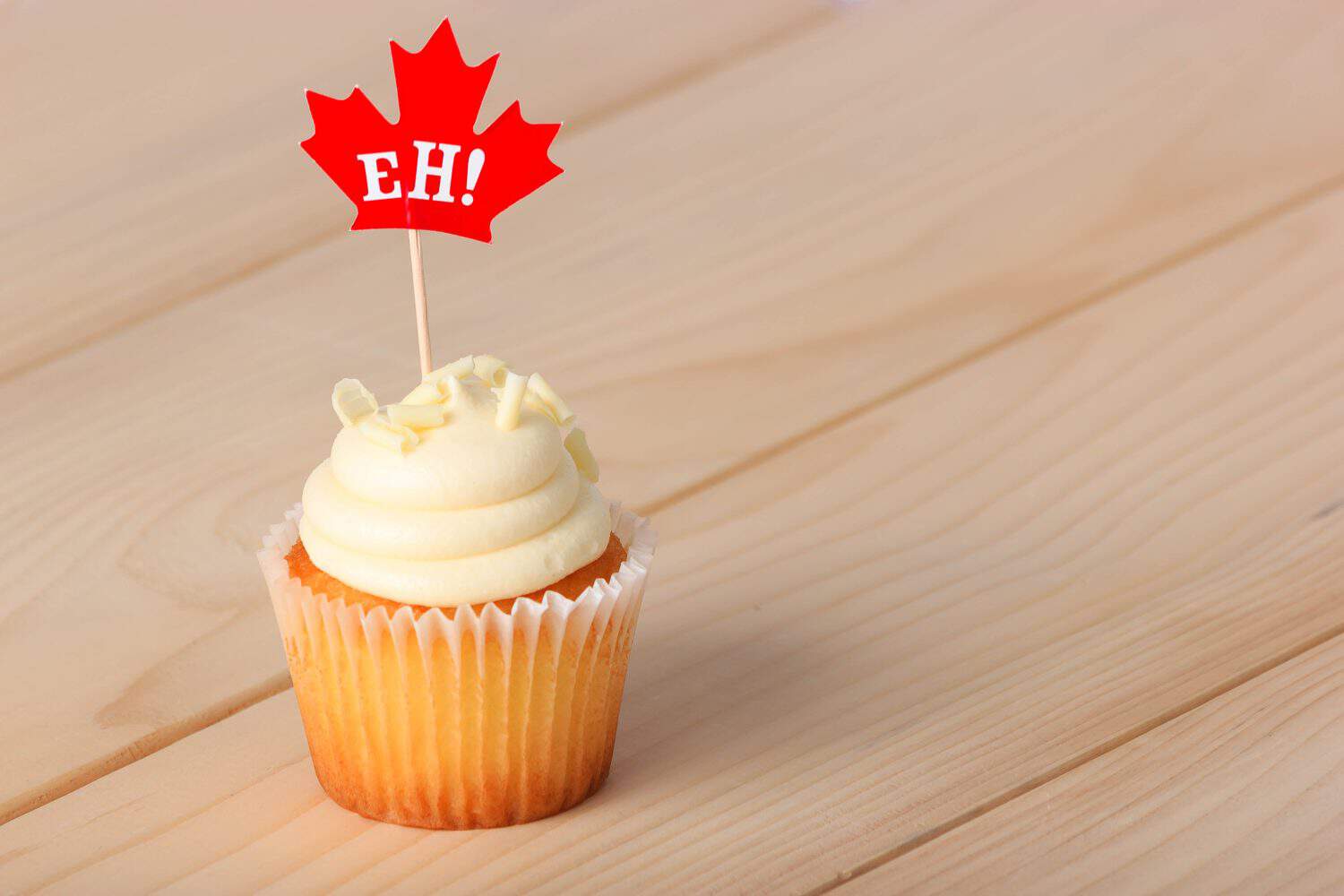
Canadians are famous for using the term “eh” (pronounced like a long “a”) at the end of their sentences, like, “How about (‘a-boot’) that hockey game, eh?” Other Canadian terms you might hear:
Americans have a wide range of regional vocabulary differences, but few if any of them use the Canadian terms listed above.

People in Canada tend to be more reserved, using more modest gestures and unassuming body language, a quieter tone of voice, and generally behaving in polite, kind ways. No doubt, you know some Canadian person who is the exact opposite. (Jim Carrey is a Canadian and you can’t get much more outrageous than that!) But generally speaking, Canadians are reputed to be unfailingly polite and modest, almost to a fault.
Jim Carrey excepted, their humor tends to be clever but dry. And they don’t mind having a good-natured laugh at their own expense. In conversations, they tend to give thoughtful responses to questions and be more tentative about putting forth their ideas. They will tend to seek consensus rather than asserting their position boldly.
Of course, enormous numbers of Americans are the same way. But if a person speaks loudly, frankly, and directly, uses large gestures, and just isn’t afraid to speak their mind, 9 times out of 10 you’ve just encountered an American. (You might want to double up on your anxiety meds now).

Canada is a diverse country, as is the United States, but Canada has had to put an enormous effort into being culturally inclusive because of the large French population of Quebec, which could seek secession from the country if they are treated as second-class citizens. Immigration has brought people from all over the world to cities like Toronto, so this approach is crucial to social harmony.
Thus, conversations with Canadians will sometimes contain clues of progressive attitudes toward cultural differences. This is by no means decisive of course, as at least half of the citizens of the U.S. would share those views. In the United States, though, ethnic and racial disharmony is more visible and a more frequent topic of conversation. Polite American people are guarded when talking about these issues with people they don’t know, but if they think you agree with them, they will sometimes in private share views about social issues and ethnic diversity that don’t fit a politically correct narrative.
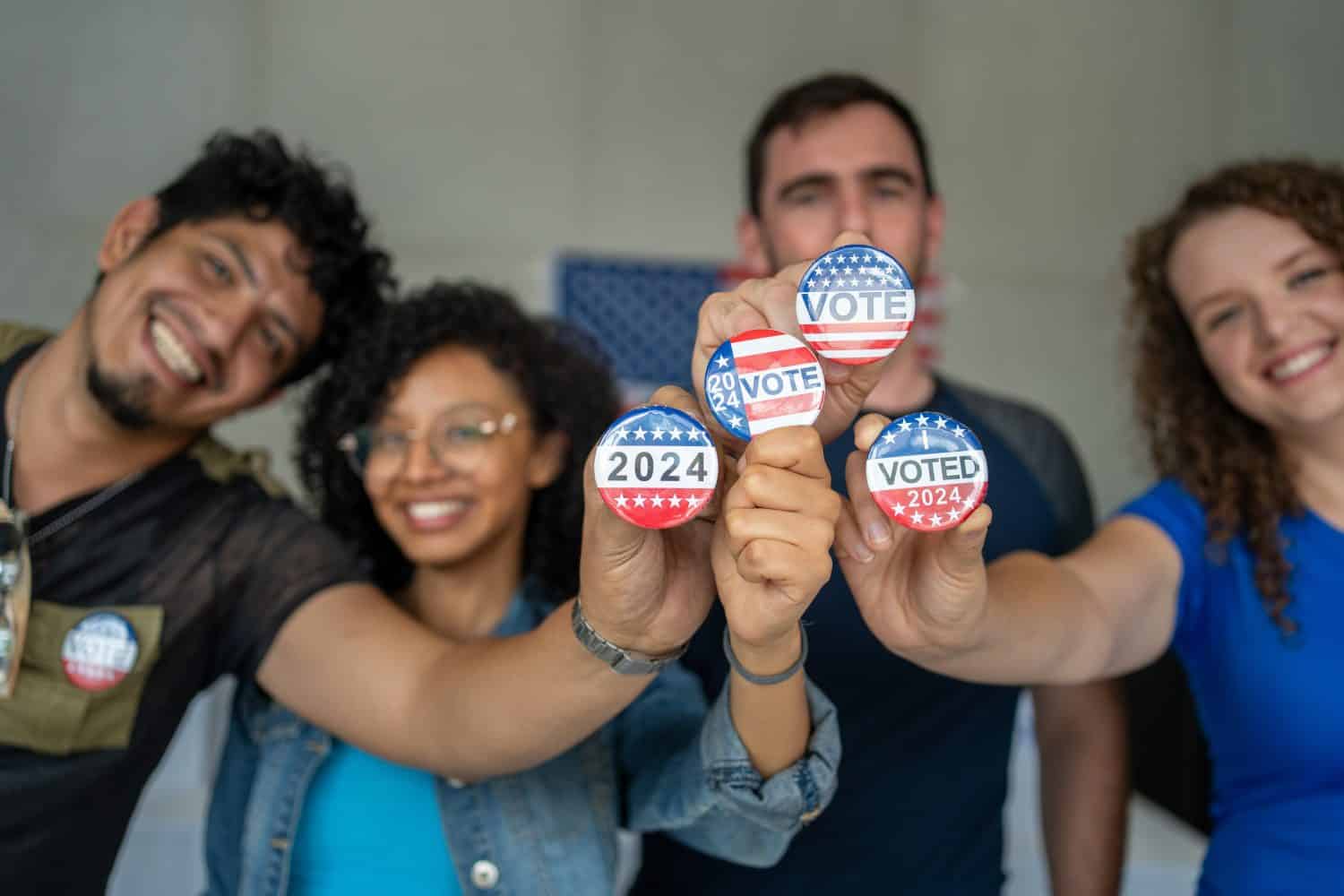
Some Americans show a great deal of patriotism by displaying the flag or wearing shirts and hats that advertise their politics. Americans are often deeply invested in elections, and the President is a frequent topic of conversation, pro or con. Being an American, for many people, is at the deep core of their personal identity and something that arouses a lot of passion.
Canadians are more likely to brag on their favorite hockey team than a political party or the country itself. Many Canadians are appreciative of their health care system and low-key appalled that the United States doesn’t do better in this area. Some Canadians, particularly in rural areas, are quite socially conservative and balk at the bureaucracy and control of the federal government. But only a small percentage of them would agree with all of the social agenda of conservatives in the U.S.
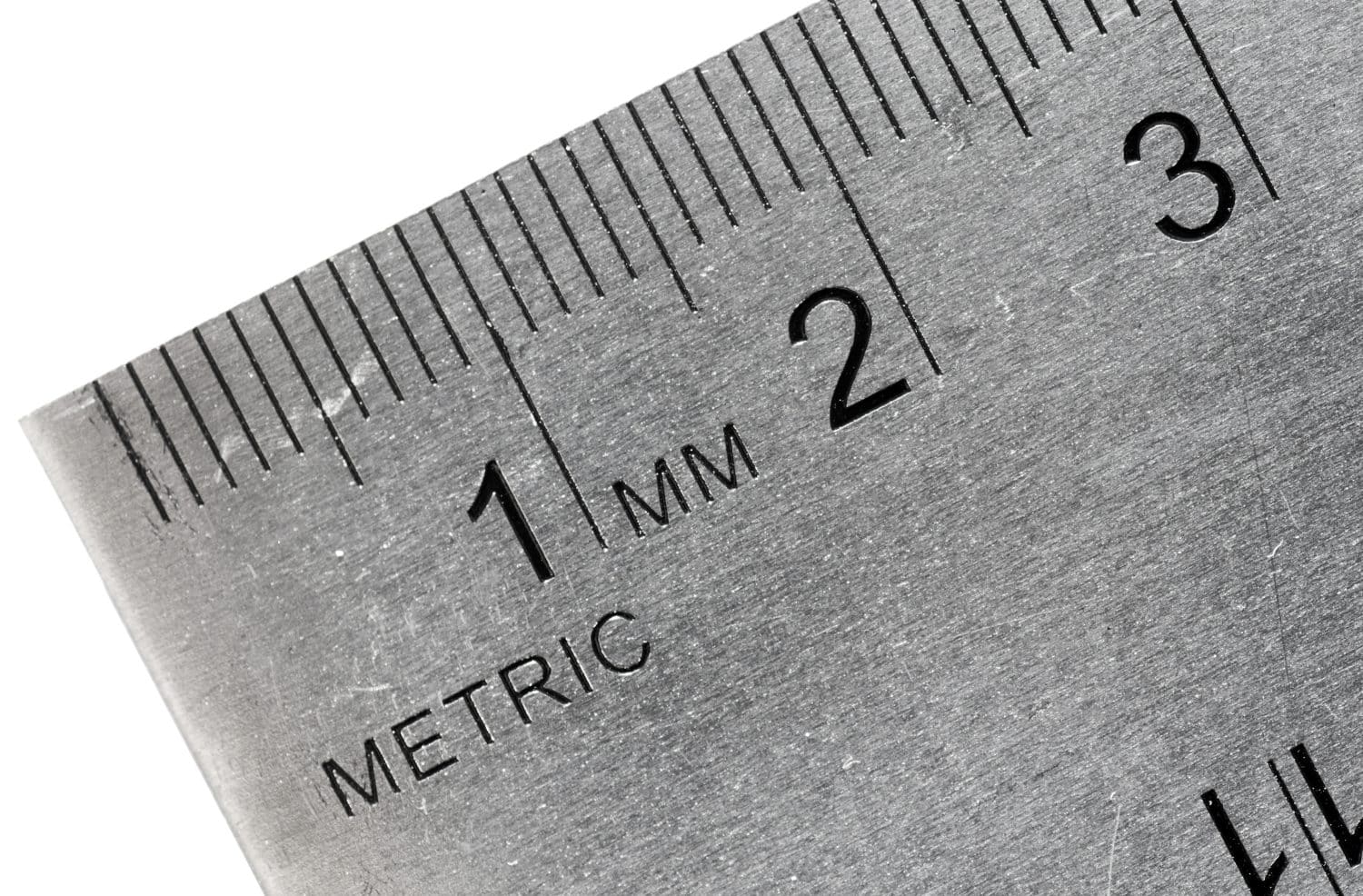
Canada is on the metric system, so an easy way to tell Canadians and Americans apart is by listening to how they describe distance, temperature, and other units of measure, or how they struggle to mentally convert one system to the other. If it’s a hot day and the person says it must be 40 degrees, probably Canadian. If someone asks you what’s the price per gallon of gas where you live, then that’s an American.
Note though that some metric units have worked their way into the American consciousness. Americans purchase 2-liter bottles of soda and athletes may run a 5K or sprint 100 meters. Drugs (legal and illegal) are also measured in grams. And Canadians do sometimes use feet, inches, and pounds as it can be more convenient for things like height and weight, especially when the media and health literature are flooded with American-generated information.
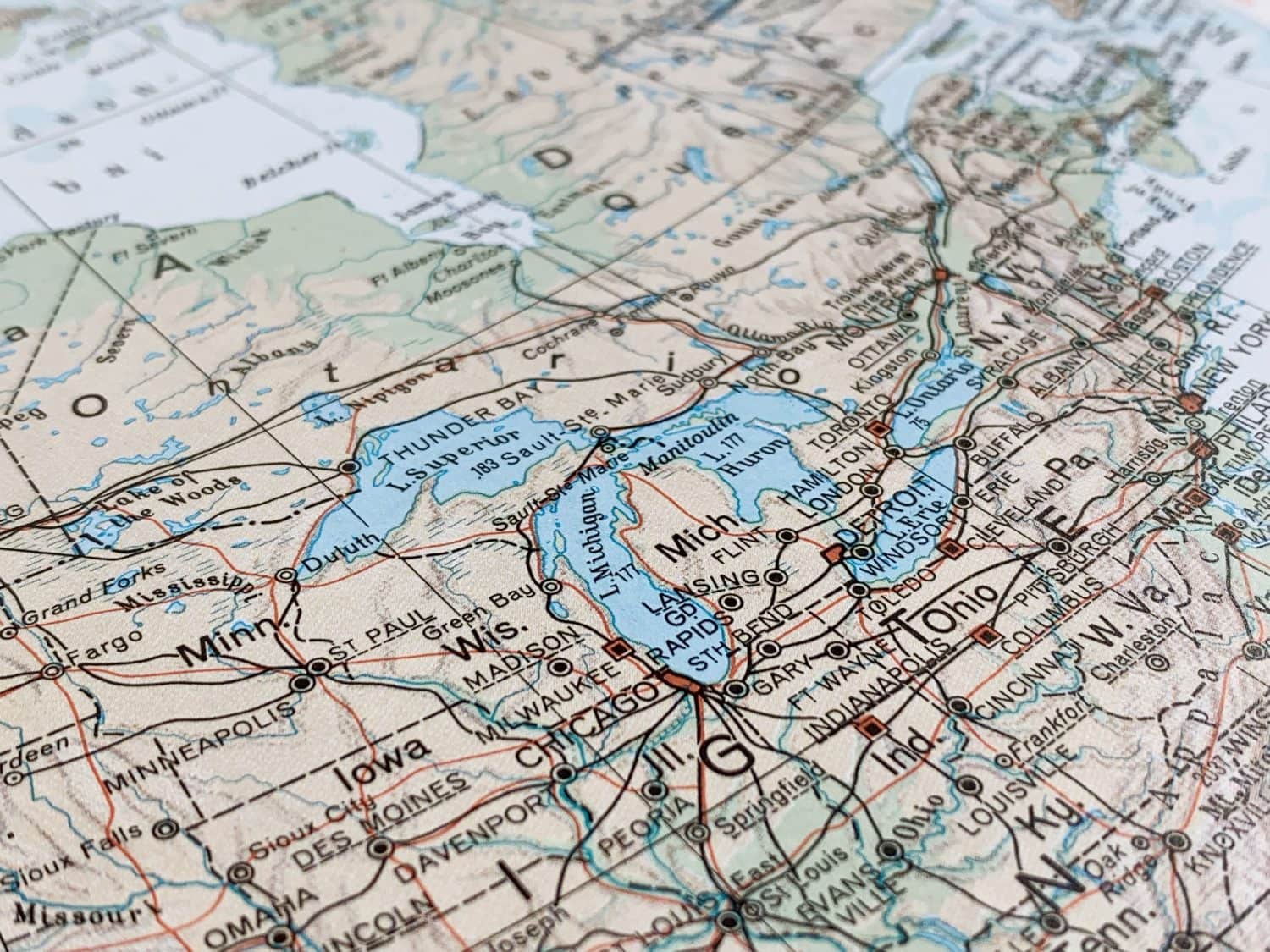
Finally, if you ever hear anyone ask the question, “Why doesn’t Canada join the U.S.?” you can be sure that person is an American, not a Canadian. The question is quite insulting, as it assumes American superiority and shows a lack of appreciation for Canada’s unique culture. Most Americans know very little about Canada, while most Canadians live within 100 miles of the border, have been to the U.S. one or more times, and are flooded with its media and entertainment. This helps them not only understand American culture, appreciate how the Canadian culture synthesizes some of the best features of Europe, North America, and other parts of the world.
If, as an American, you get the opportunity to visit Canada, don’t be surprised if you like what you find. Maybe so much so that you’ll even start asking, “Why doesn’t the U.S. join Canada?”
Credit card companies are pulling out all the stops, with the issuers are offering insane travel rewards and perks.
We’re talking huge sign-up bonuses, points on every purchase, and benefits like lounge access, travel credits, and free hotel nights. For travelers, these rewards can add up to thousands of dollars in flights, upgrades, and luxury experiences every year.
It’s like getting paid to travel — and it’s available to qualified borrowers who know where to look.
We’ve rounded up some of the best travel credit cards on the market. Click here to see the list. Don’t miss these offers — they won’t be this good forever.
Thank you for reading! Have some feedback for us?
Contact the 24/7 Wall St. editorial team.